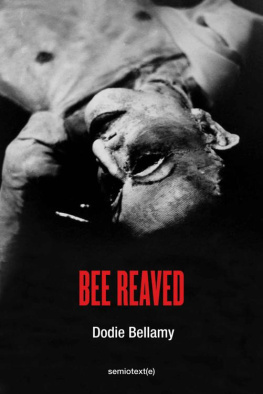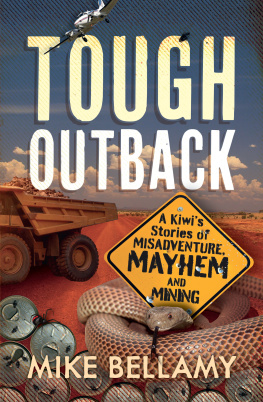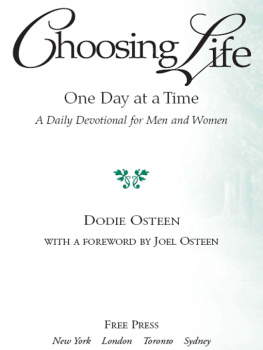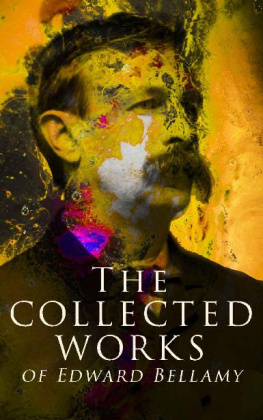SEMIOTEXT(E) ACTIVE AGENTS SERIES
2021 Dodie Bellamy
All rights reserved. No part of this book may be reproduced, stored in a retrieval system, or transmitted by any means, electronic, mechanical, photocopying, recording, or otherwise, without prior permission of the publisher.
Published by Semiotext(e)
PO BOX 629, South Pasadena, CA 91031
www.semiotexte.com
Special thanks to Bradford Nordeen, Ella Blanchon, Paul Monroe and Lia Gangitano.
Cover: Greer Lankton, Aunt Ruth, 198083. The Estate of Greer Lankton.
Design: Hedi El Kholti
ISBN: 978-1-63590-157-3
Distributed by The MIT Press, Cambridge, Mass. and London, England
d_r0
BEE REAVED
Dodie Bellamy
semiotext(e)
We are here and you are where you are.
Nick Cave
Contents
Guide
HERE
Hoarding as criture
[O]ne does fill some with all one takes in, and I've taken in, I dare say, more than I've natural room for.
Henry James, The Ambassadors
In August, 2015, Kevin Killian and I turned over fifty-five file boxes of ephemera to the Beinecke Rare Book & Manuscript Library at Yale. Negotiations for the transfer, like those in a hostage situation, were long and drawn out, and we didn't know until a month before it happened if the deal was going to go through. So for two years Kevin and I had this big secret we dared only to whisper to a couple of our closest friendsand we still have a big secret because telling anybody how much money we received is considered beyond vulgar. This is painful for both of us. Though we spent thirty years of our literary life hoarding its dejecta, our writing has been committed to spewing all sorts of shit few would dare reveal. Hoarders of information we have never been.
Kevin and I don't have a lot of space. We live in a one bedroom apartment, with a small back porch we use for an office. We used to keep dozens of boxes of whatever in the basement, but one day our landlord made everybody clean out all their stuff, and it's sort of ruined our lives. Even with a storage unit three blocks away, boxes are stacked everywhere. The storage unit was so full that in order to organize our archives, we rented a second unit for a year. The artist Kota Ezawa also lent us his studio when he was on an extended out-of-town gig. I feel abject and scattered when I take in the disorganized chaos that surrounds me. Books have overflown their shelves and are stacked in irregular, toppling piles on every available surface. We're getting rid of half these books, we declare. The last time we did a book sweep we made $500, but the will to do another sweep never seems to arise. It's both more and less than laziness; its the sheer intensity of decision-making that stops us. That book on Surrealism I've had since high schoolto remove it would be like tossing away a part of my DNA. Same with my two copies of Julia Kristeva's Powers of Horroreven though the parts that matter most to me have long been scanned and stored in the PDF folder on my hard drive, which is backed up both locally and online. As long as there's an internet and I have money to pay for it, Powers of Horror will never leave me. But when I touch the books, I'm flooded with memories of discovering the lack around which all my writing would henceforth revolve, my brain sparking, my hand scribbling in the margins, purple, red, black. If I got rid of my two copies of Powers of Horrorseven though I know I'll never read either againit would be as if I were rejecting my younger self, saying to my younger self I never really valued you.
Way back in the 70s my younger self read an interview with the novelist Jayne Anne Phillipsthis was before Phillips started publishing with mainstream pressesand I remember her talking about the junk piled around the houses of poor people in the South, how by surrounding themselves with all this broken-down stuff, people who had nothing could feel the comfort of surplus. She somehow connected the lushness of Southern writing to those junkyard houses. I think of the stylistic opulence of my first novel, The Letters of Mina Harker, all the sex, cultural references, quotes, puns, poetry, parody I crammed on top of one anothereach convoluted sentence screams these words matter dodie matters . If only I'd kept my copy of Jayne Anne Phillips first chapbook of stories, Sweethearts, printed in 1976 in an edition of 400. I bet it would be worth something now. That's the problem with choosingit cannot be trusted. Invariably, non-hoarding lets you down.
Archivists wine and dine and flatter you until they break through your defenses. It's like the archivists are Mommy and you're sitting on the toilet taking your first poo. They say, Good Dodie! and you give them whatever they want, even tender bits you know are better kept hidden. What archivists want are singular unique objects, the irreplaceable. All these letters, photos, contracts, yellowed news clippings, flyers, manuscriptsmoving my hands across their object auras, the sadness of materiality strikes me, the inevitability of loss. I think of old people getting ready to die and giving away their stuff. I think of schizophrenics who get rid of everything they own, all their money, and set off. I unearth the first two pages of a letter so intense it verges on love letter, but the final page is missing and I can't figure out who it possibly could have been from. Dismay hits me, this sense of a vast past that has vaporizedall that love and anger and realization. My past. The more the papers are organized, I start to think of them as an exoskeleton protecting me from annihilation. The sense of exposure is unbearable. I feel like I'm attending my own wake; I feel like I'm being embalmed. But I bear it because I want the money, want to be remembered even though the future the archives promise feels impossible. Impossible in that I won't be here any longer, impossible in that anybody would be interested in my life/stuff. And then there's my apocalyptic pessimismit's hard to believe that human life won't soon be extinct. Posterity, despite the Beinecke's climate-controlled storage facilities, may end up being puny. I gave the archivists everything. Everything except my journals and wedding photos and anything to do with my deceased parents. I kept these tokens out of love and a conviction that I'm not finished yet.
Sometimes I run into someone I know I don't get along with, but I can't remember why. An impression too vague to base behavior or attitude on, yet there it is between us, foggy as scratched Plexiglas. A woman I haven't seen for a decade sticks her face in mine and gives a fulsome apology for some previous bad behavior, and in a fit of claustrophobic panic I find myself saying don't worry about it, everything's fine, it was a long time ago, I'm as much to blame as youeven though I have no idea what she's talking about. Friends who teach complain that these young people have no sense of history, but I worry that no one can escape our ahistorical zeitgeist, that all of us are tunneling towards a totalizing now . I imagine existence as a boundless expanse of dirt and I'm a worm burrowing through it, gorging on it on one end, shitting it out on the other. I read online that the donut shape is the basic organizing structure of multi-celled creatures, that the human body is an elongated donut, our digestive tube from mouth to anus, the donut's hole. Our deepest interiority is a slick pink hole. Whatever I haven't written down slips away. My journals prove that I have existed, that I'm a continuation of something. Dozens of volumes of fleeting thoughts and emotionsmuch of it embarrassing and not nearly enough descriptionwaiting for a crack of light, waiting to be shaped, loved.
Next page









